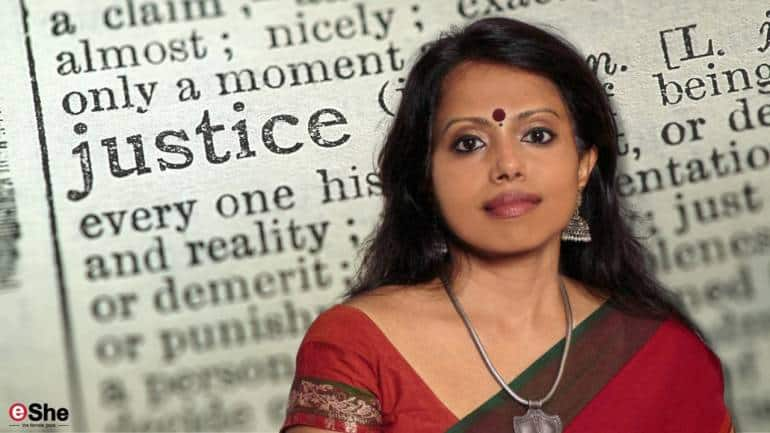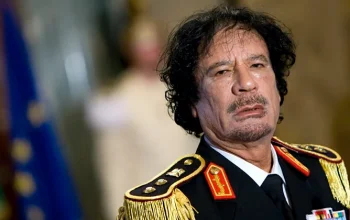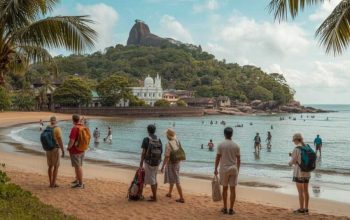By Marianne David
The human rights situation in Sri Lanka has historically been concerning and systemic structural issues are yet to be addressed, says former Commissioner of the Human Rights Commission of Sri Lanka (HRCSL) Ambika Satkunanathan.
In an interview with The Sunday Morning, Satkunanathan cited the Prevention of Terrorism Act (PTA), Police brutality, militarisation, intimidation, harassment, surveillance, abuse of power, and the culture of impunity as some of the recurring systemic problems. “In a sense, the human rights situation in Sri Lanka is still concerning. It has worsened in relation to socio-economic rights, due to the economic crisis, and the root causes, the systemic structural dysfunctionalities, remain unaddressed,” she asserted.
Commenting on the United Nations Human Rights Council (UNHRC) stance on Sri Lanka and the report by the Office of the United Nations High Commissioner for Human Rights (OHCHR), Satkunanathan acknowledged that the High Commissioner’s report “states facts” and had focused on longstanding issues as well as more recent issues, while calling for those in positions of powers who had historically abused power and continued to do so and those who had committed violations to be held accountable.
She also outlined the work carried out during her tenure as the HRCSL Commissioner to improve the human rights situation in Sri Lanka and listed obstacles to progress, pointing out that the Commission was in many ways dependent on political will and State structures.
Following are excerpts of the interview:
How do you view the human rights situation in Sri Lanka at present?
The human rights situation in Sri Lanka has historically been concerning and at different points of time it has become worse and then it has become slightly better. However, there are systemic structural issues that remain. Issues that were never tackled – for instance, the Prevention of Terrorism Act.
Of course, there are certain constants that have existed for decades, like Police brutality, and also since the end of the war, particularly in the conflict-affected areas, we’ve had militarisation, intimidation, harassment, and surveillance of protesters, human rights activists, media, etc. Those issues still remain. For many people the longstanding justice issues also remain, whether it is related to violations that took place during the war, such as enforced disappearances and assassination of journalists.
In a sense the human rights situation in Sri Lanka is still concerning. It has worsened in relation to socio-economic rights due to the economic crisis and the root causes – the systemic structural dysfunctionalities – remain unaddressed. At this point there are certain problems that are more heightened, such as the crackdown on people who took part in the protests over the last several months, and socio-economic issues, such as food insecurity.
What is your view on the UNHRC’s stance on Sri Lanka, the OHCHR report, and the recommendations?
The High Commissioner’s report states facts, whether we like it or not, and it has focused on longstanding issues as well as more recent issues – for instance, what they call economic crimes and the impact of the economic crisis on vulnerable populations. We can’t really dispute it because it states facts.
The Government claims the High Commissioner’s recommendations are against sovereignty, etc., but if you analyse it, they call for those in positions of power who have historically abused power and continue to do so and those who have committed violations to be held accountable. Implementing the recommendations might have adverse repercussions for such persons but will benefit the general population.
As a former Commissioner of HRCSL, could you outline the steps taken during your tenure to improve the human rights situation in Sri Lanka and what you proposed and implemented?
One of the first things we did was write to the Attorney General (AG) regarding persons detained under the PTA and made recommendations on what had to be done. This letter was posted publicly on the HRCSL website. We began undertaking regular visits to Police stations and prisons to tackle Police brutality and violence in prisons. We did a national study on prisons, and held inquiries to hold those people accountable.
We also focused on populations that are discriminated against and marginalised, for instance the LGBTIQ community and persons with disabilities. We established subcommittees with people from those communities and activists, to identify issues on which the Commission could intervene and at that point it did function quite well.
We tried to increase people’s access to the commission, so we tried to find ways of spreading awareness, of making our regional offices reach out to people, and to be more visible, so that people knew where they could come.
We intervened when the Government proposed draft legislation that was not in line with the Constitution and international human rights standards. For instance, there was an amendment to the Code of Criminal Procedure and the draft Counter-Terrorism Act (CTA). We wrote several times to the then Prime Minister requesting copies of the draft law, which we never received, which we stated that publicly at the time. We did this because one of the duties as specified in the Human Rights Commission’s Act is to ensure that national laws and policies are in line with international human rights standards.
Those are some of the examples of what we did, but we could not always address the broader systemic structural problems, because we did not have the power and it required political will. Then, even though we were independent in that the appointments to the Commission were independent, we were still dependent on different bureaucratic institutions within the State structure, to do various things, to even hire staff, which meant our functioning was considerably hampered.
For example, when obtaining funding from external donors such as the UN to implement programmes, at one point we were told we had to obtain Cabinet approval, which doesn’t make sense because it is an independent institution. If the Government doesn’t like some work the Commission is doing and the HRCSL is trying to obtain funding for that because there aren’t funds in the normal budget for it, the Government can potentially stop the funding that the HRCSL receives.
Then of course State institutions sometimes disregarded the Commission’s recommendations. For example, if there was a case of torture, we would inquire into it and issue a recommendation. If it was a case of Police torture, we would send recommendations to the IGP and the Attorney General and post them on our website.
However, the effectiveness of the Commission’s recommendations depends on those to whom we issue the recommendations.
In relation to the PTA, what are your thoughts on the concerns raised by the international community and do you see them as being valid?
Absolutely. This is something I personally have said and so has the HRCSL when I was a member of it and even after that the Commission has consistently said that the PTA is a human rights deficient law. It does not adhere to international human rights standards, and it does not create any new offences. What it does is that it gives additional powers to the Police, which they abuse to violate human rights.
Terrorism is not defined in the PTA, so how do you interpret terrorism? It can be very subjective and anything subjective is very problematic because it can be shaped by a person’s prejudices.
The most egregious provision is that a confession given to a Police officer of the rank of ASP and above is admissible as evidence in a trial, which has resulted in many people being tortured to obtain confessions. This is amply recorded in the prisons study that HRCSL did – which is on the Commission website – and of course there have been Supreme Court (SC) decisions on it and even trials in which confessions have been rejected because they have been shown to have been obtained under torture.
Now there are people who say that because it has been rejected or because someone filed an FR in the SC and they found a violation, it means the criminal justice system is working and it’s acceptable to have this provision because there are checks and balances.
What they are forgetting is that there is a person who has already been tortured, there is a person who has already been in prison perhaps for 5-10 years, unfairly and unjustly accused, and their lives and the lives of their families have all been broken.
I agree with all the concerns raised by the High Commissioner and other international actors.
Are the Government proposals and approach in relation to the PTA and human rights sufficient enough to address the issues raised by the UNHRC?
The UNHRC is important because it monitors the human rights situation. When an international body monitors the human rights situation, it’s safer for all of us. Nothing can be hidden and nothing can be denied.
However, when it comes to the changes, say regarding the PTA, I would say don’t do it to satisfy the UNHRC – of course you have to abide by the resolutions as you are a member of the United Nations and you have to respect those resolutions – but you should do it because it is good for the citizens of Sri Lanka.
There is a lot more that the Government must do; it has barely begun to scratch the surface of what needs to be done so that the rights of Sri Lankan citizens are protected.
What are the recurrent human rights issues in Sri Lanka that are yet to be addressed?
Police brutality is one and it has been there for decades. In 1947 there was a Police Commission Report and if you look at that, you will feel like you are reading a report published now. Police violence is a huge problem and so is prison violence. Those are some of the systemic issues.
Then of course we have militarisation and the huge military budget, particularly since the end of the war. It was paused momentarily during the Yahapalana Government but it was never dealt with, those structures were never dismantled.
In terms of civil rights – like rights of protesters, dissenters, the media – regardless of which government is in power, the State structures are used to disrespecting the rule of law and acting with impunity, which is why you see these violations recurring. The dysfunctional criminal justice system is a constant and the undermining of the independence of remedial institutions, such as the HRCSL, is a recurrent issue.
Then of course we have the PTA, the Public Security Ordinance, and the ability to declare a State of Emergency without adequate checks and balances and issue Emergency Regulations that violate human rights. Section 12 of the Public Security Ordinance – which Chandrika Bandaranaike Kumaratunga, Mahinda Rajapaksa, Maithripala Sirisena, and Gotabaya Rajapaksa used and now Ranil Wickremesinghe is using – enables calling out the military every month to maintain public order. This is very worrying because it gives the military powers of arrest, etc., which no military should have.
Other long unresolved issues are the discrimination of numerically minority communities and the failure to address the root causes of the ethnic conflict and provide a political solution. Along with an over-powerful and unaccountable president, the abuse of power, and the culture of impunity, those are some of the recurring systemic problems.
How do economic crimes figure in the human rights agenda?
Well, they’ve termed it economic crimes, but these also result in violations of socioeconomic rights. In Sri Lanka, during the constitutional reform process during the Yahapalana Government, there were those who were advocating for socioeconomic rights to be included, but there was quite a bit of opposition to it, including from certain sections of civil society.
I think it is positive that socioeconomic rights have come into focus, because it’s about corruption and financial mismanagement which led to the economic crisis and impacted the socioeconomic rights of Sri Lankan citizens. If people are not able to enjoy their socioeconomic rights, they will not be able to enjoy or claim their civil and political rights. They are interdependent, which the crisis has highlighted.
In terms of law enforcement authorities in Sri Lanka, are they aware and trained on best practices? What needs to be done to improve matters?
This is a problem that can’t be addressed by only training. Donors like the UN and different governments have funded training on best practices, etc., for many years, but we have not seen much of a difference, so you have to ask the question why. It is also because violence is normalised and embedded in the structures.
For instance, the culture within the Police is such that junior officers are treated with little respect. I have seen senior officers use abusive and dismissive language and treat them with no respect or dignity. Therefore, when the Police, who have so much power, deal with the public, they think it is quite normal to abuse that power and it is those who are already marginalised and powerless who are at risk of being abused.
The other issue is impunity. When they abuse their power, there is absolutely no action taken. Sometimes the most that is done is that the officer is transferred but often not even that. Therefore they think that they can continue to do it. These factors need to be dealt with and merely providing training on human rights standards is not going to help. It is a mindset, it is a culture, it is how they function and work every day. Their processes and methods lack integrity.
You need a holistic approach and you need political will to address the really complex problems, which means you need to allocate the resources and make difficult decisions, which can make you unpopular.
Sri Lanka has been very much on a patriot vs. traitor or majority vs. minority approach; in the backdrop of the Aragalaya and the change it brought about, what is your hope for Sri Lanka, do you see the youth moving away from that mentality?
The Aragalaya created space to talk about some issues which had never been talked about generally. I have been talking about militarisation – often it felt like to myself – for at least 10 years. To see people in the south also talk about it because it came to their doorstep is something I never thought would happen. Now when militarisation is raised, people seem to pay attention and some seem to care. In that sense it did open up spaces for discussion.
However, what I do see is that when people engage on these issues, they don’t seem to realise the importance of looking back, because they may have become aware of the issue only now, but people have been working on them for years.
If you want to be an effective advocate, you should study what has been done, you need to figure out the positions that were taken, how have people advocated on the issue, etc.; you cannot act as if you have discovered it and you’re going to do your own thing, because you might end up undermining work that was done in the past that has led to today’s outcomes. It is really important to build on what was done.
For instance, in terms of the PTA, I have seen some protesters making demands that aren’t in line with demands made by those affected by it and don’t adhere to accepted international standards. The question now is, who is going to maximise this moment, going to continue these conversations, take it further – particularly in the south – and create awareness? Who is going to take the time and energy that is required to do this? That is where I fear we might not see progress.
People jump on bandwagons when it is fashionable to work on a certain issue; but to continue to do it, spend six months or one year to build relationships with those communities, make them aware, support them, etc., that takes time and energy. Also, it is work that is unseen, no one knows that you are doing it, they might never know. There is a lot of reluctance to do work like that, but that is what is really important. That’s how you change society.






